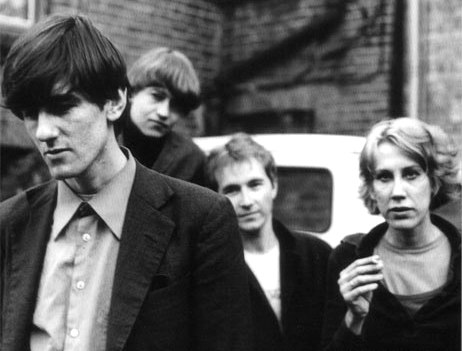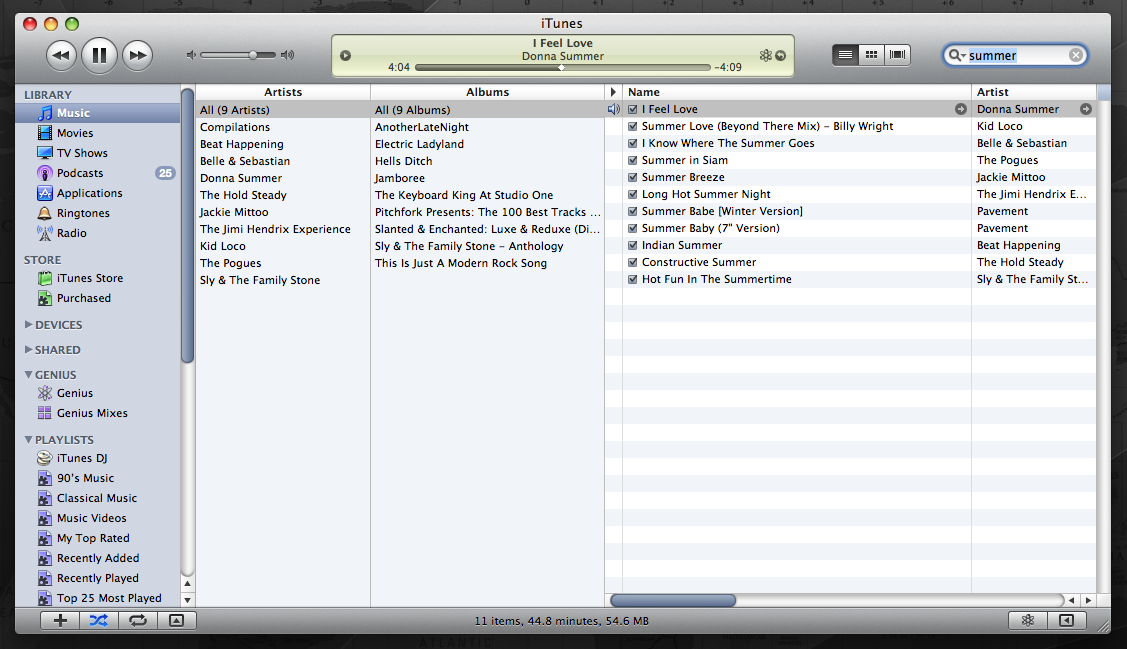
This album — The Band’s self-titled second LP — was a fixture of my adolescence, but not because I ever listened to it. Rather, the LP itself was always lying around in a stack of records that belonged to my father and brother near my bedroom, and it became an emblem for me of a kind of “mainstream, bluesy, roots rock” style that I had rejected in favor of more esoteric punk rock and new wave. With just this image to go by, I probably thought that they were some coal mining banjo players from the 1930s, and I was not into it.
When I got to college, I lived with some Deadheads, and became familiar with The Last Waltz soundtrack, which was played over and over again at our parties — in particular, of course, “The Weight.” I can still see my crazed hippie roommate singing “Wait a minute Chester, I’m a peaceful man…” at the top of his lungs. But even as I developed a sort of acceptance and even appreciation for them, I never took enough of an interest to pursue them further on my own — and the version of The Band that I was getting familiar with was their late ’70s, already somewhat cheesy manifestation.
That changed with my recent discovery of The Basement Tapes, detailed in this prior post. Part of what appeals to me so much about the songs from these mythic 1967 sessions is how they fused traditional Americana folksyness with what is basically a soul-R&B sound, and a quick crash-course in The Band (and digesting of their most recent box set anthology) taught me why: prior to becoming Dylan’s first electric backing band (and therefore the cause of the “Judas!” chant and other renowned folkster heckling), they backed up Ronnie Hawkins, an Elvis-like crooner on the “Southern Chitlin circuit.” (I have a weird obsession with the Chitlin circuit, based on my belief in the possibly apocryphal story that Jimi Hendrix got so great by playing with “a different band on the Chitlin circuit” every night for years.)
So when Dylan found The Band, they were more or less a white soul backing band (indeed, when they first struck out on their own they considered calling themselves “The Honkies” and “The Crackers”), and it’s probably a safe bet that their blossoming into a rootsy, counter-counter-culture late 60s/70s touring behometh had something to do with the collision of those influences with everything Dylan brought to the table. There is an amazing scene in The Last Waltz (yes, the greatest living director made a documentary in 35mm of their final ever concert, featuring cameos from just about anybody you can imagine: Dylan, Joni Mitchell, Emmylou Harris, Eric Clapton, Ringo, Neil Young, etc. etc., and which is full of amazing interviews between Scorsese and members of The Band where all of them are obviously on a LOT of cocaine) where Levon Helm (the drummer and only true Southerner of the group — the rest of them were Canadian, amazingly) talks about the area around Memphis and the cross-pollination of different musical styles that went on there: “That’s kind of the middle of the country back there. So bluegrass or country music, you know, if it comes down to that area and if it mixes there with rhythm and if it dances, then you’ve got a combination of all those different kinds of music. Country, bluegrass, blues music.” Robbie adds, “The melting pot.” Levon adds, “Show music.” Scorsese then asks, “And what’s it called?” And Levon, with wide eyes, replies, “Rock and roll!” This perspective might lend itself to the conclusion that The Band, who paid their dues playing the blues like Johnny Ryall, and then embraced the Appalachian side of traditional American music, were the only truly authentic rock and roll band of the late ’60s/early ’70s (or at least the most authentic).
Listening now to their recorded output, it’s hard not to forget that, as with Gram Parsons’ music, what sounds very familiar today was just utterly weird when they were first doing it. But what is even more amazing to me is how some of their best work (which stretches, in my and I think most critics’ view, from their inception to the 2d album pictured above),still sounds weird and hard to place. I’ve read like a dozen descriptions of how shocked everybody was by the opening track of their debut album Music From Big Pink, Tears of Rage, in part because it flew in the face of so many conventions of the time, ranging from “start your record with a rocker, not a ballad” to the fact that this song (co-written by Dylan and Richard Manuel, The Band’s amazing pianist who eventually committed suicide), released at the peak of the hippie counterculture revolution, was sung from the perspective of parents who have been betrayed by their daughter who has “cast them all aside” in favor of “false instruction that we never could believe.” I can’t even imagine what it must have sounded like at the time, but what is so incredible to me is that even for somebody discovering this version of this song in 2010, after a lifetime of listening to so many of both their influences and the bands they influenced, it still sounds so alien and impossible to place.
As much as people celebrate The Band for helping to invent “country rock,” what really stands out for me, then, is that nobody has really sounded like them before or since. Their technique of having three or four vocalists all singing at just about the same level and separated in the mix still sounds alien to me, although I’m sure somebody could point me to later music that’s imitated this approach. It is also fascinating to me how quickly their sound devolved, almost certainly because of the success and drug addiction it spawned, into a sort of parody of itself, so that by the time Robbie Robertson broke up the band (although they would continue to tour without him throughout the ’80s and ’90s), they really did sound more or less like a cheesy, if still awesome, ’70s country rock band — in just a few years they became their own imitators in effect.




























